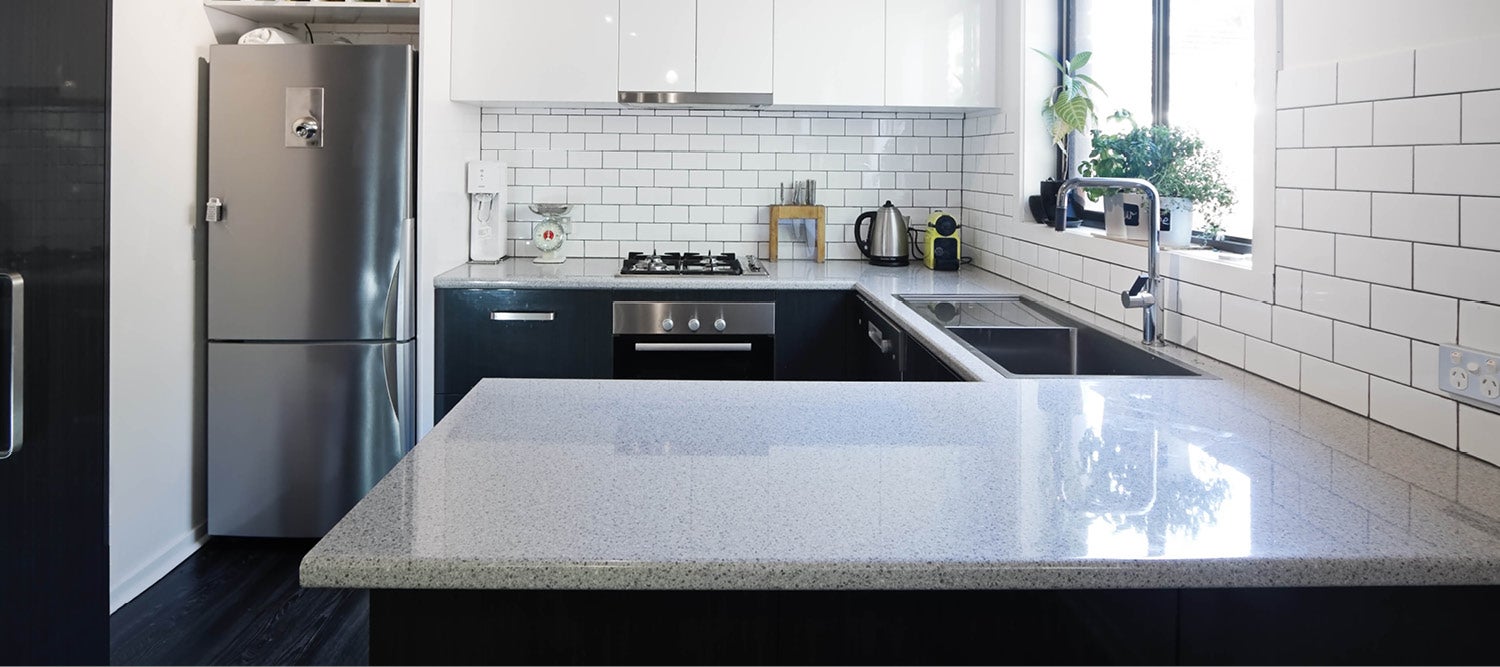
Australia's craze for composite stone benchtops
Australia's craze for composite stone benchtops

Composite stone, also known as engineered, manufactured, artificial or quartz stone, is one of the most popular choices for kitchen benches in Australia. First introduced in the 1980s, a browse through any modern home decorating magazine will find countless examples of this durable, good-looking material used for benchtops, splash backs and bathroom surfaces.
Unfortunately, the increasing popularity of composite stone bench tops since the early 2000s, coupled with Australia’s renovation explosion, has resulted in an alarming resurgence of silicosis cases.
The problem lies in the cutting, sawing and polishing of the stone slabs, in order to make the bespoke size and shape for each kitchen and bathroom. The cutting process, which is done with cutting machines and angle grinders, can release clouds of silica particles, which are toxic when inhaled.
Unless stringent safety precautions are followed, including the use of wet tools and cutting machines, effective ventilation and filtering systems, and the wearing of protective face masks and clothing, then stonecutters will be exposed to toxic dust.
As silica dust is 100 times smaller than a grain of sand, and almost invisible to the naked eye, it remains airborne long after other particles have settled, and you can be breathing it in without knowing.
The Cancer Council of Australia estimates in 2011, that more than 587,000 workers were exposed to dangerous levels of silica dust.
Not just stonemasons, but many other workers may be exposed to silica dust in the course of their daily occupation. You may be exposed to silica dust if your work involves:
- Breaking, crushing, grinding or milling material containing silica dust
- Sand blasting or casting
- Paving, surfacing or cement finishing
- Bricklaying
- Demolition work
- Road construction
- Stonemasonry
- Mineral ore-treating processes
- Manufacture of glass, ceramics, brick, concrete, tile, metals or machinery
If you are concerned about your health, and you think you may have been exposed to hazardous dusts, speak to your doctor. Early detection of lung disease is important to avoid further exposure and thus progression of the disease.
